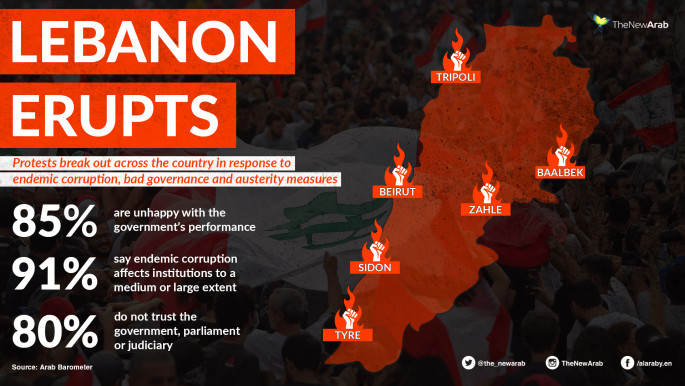Foreign lenders cut ties with Lebanon as financial crisis deepens
HSBC and Wells Fargo are among the banking service providers breaking off their business relationships with Banque du Liban, Reuters reported.
In a letter to Lebanon's public prosecutor, central bank Governor Riad Salameh warned that Wells Fargo had closed a central bank account in dollars, while HSBC had shut its British sterling account.
The "negative shocks" in the relationship between Banque du Liban and foreign correspondent banks will make it tough for Lebanon to transfer foreign payments and purchase basic goods from abroad, Salameh said.
Bank of America and Deutsche Bank were among lenders that had also reduced their activities with Lebanese banks in areas such as cross-border payments and letters of credit.
However, sources told the news agency that other banks such as JPMorgan, Bank of New York Mellon and Citi and Commerzbank remain active.
Foreign financial institutions have become weary of Lebanon since the government defaulted on its debt last year and the value of the Lebanese lira crashed against the dollar.
Estimates point to a reduction in foreign lenders since 2019 between 20 percent and 80 percent.
Salameh is currently facing scrutiny for his role in the financial crisis both at home and in Europe, with a Swiss investigation into money laundering and corrupt practices under way.
Read also: The world watches Lebanon on brink of collapse
The central bank Governor has previously faced corruption allegations amid Lebanon's worsening financial crisis. He was summoned to court last December as part of an investigation into how central bank dollars ended up in the black market, but refused to attend.
Lebanon's President Michel Aoun blamed the central bank, in a speech late on Wednesday, for the financial collapse and for stalling an audit that is key to unlocking foreign aid. The central bank did not responded to Aoun's remarks.
Subsidies drawn from critical foreign reserves that currently fund vital imports of wheat, fuel and medicine are forecasted to run out by the end of May.
Lebanon’s sovereign credit rating was cut deeper into junk territory in recent years as concern grew about the sustainability of its public debt. The heavily indebted state and the central bank have since traded blame for the crisis, Lebanon’s worst in decades.
Follow us on Facebook, Twitter and Instagram to stay connected



